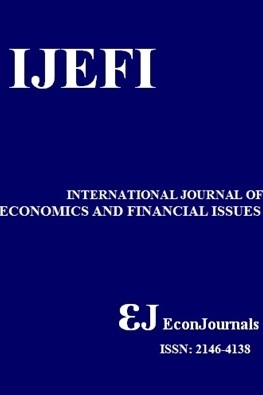Minimum Wage Policy and Country’s Technical Efficiency
Minimum Wage Policy and Country’s Technical Efficiency
Minimum wage, efficiency non-parametric, Tobit, competitiveness,
- Başlangıç: 2011
- Yayıncı: İlhan ÖZTÜRK
Individual Choice of a Pension Fund in Russia: Are the Investment Results of the Fund Important?
Karen TUMANYANTS, Eugenia V. GULYAEVA
Education and Human Capital Effect on Malaysian Economic Growth
Rabiul ISLAM, Ahmad Bashawir Abdul GHANİ, Bobby KUSUMA, Belinda Barbara THESEİRA
Testing the Structure-Conduct-Performance Paradigm for the Turkish Banking Sector: 2008-2013
Malaysia’s Domestic Value Added Export: The Role of Governance and Strategic Policy Reforms
Tax Risks in the Company’s Accounting System: Essence, Identification and Control
Marina V. SHTİLLER, Vera L. NAZAROVA, İrina V. SELEZNEVA, Oksana Yu. KOGUT, Lilia M. BEKENOVA, Aygul S. JONDELBAYEVA, Valeri A. KORVYAKOV
Sallahuddin HASSAN, Musa MURTALA
The Role of the Gulf Cooperation Council’s Sovereign Wealth Funds in the New Era of Oil
Regional Resources Capitalization: Theoretical and Methodological Basis
Julia V. LYSHCHİKOVA, Anna V. ORLOVA, Yevgenia V. NİKULİNA, Yevgeny İ. ANOKHİN
Mansour Naser Alraja, Samir Hammami, Hazem Mohammed Al SAMMAN
Social and Macroeconomic Uncertainty and Private Savings: A Case Study of a Developing Economy
